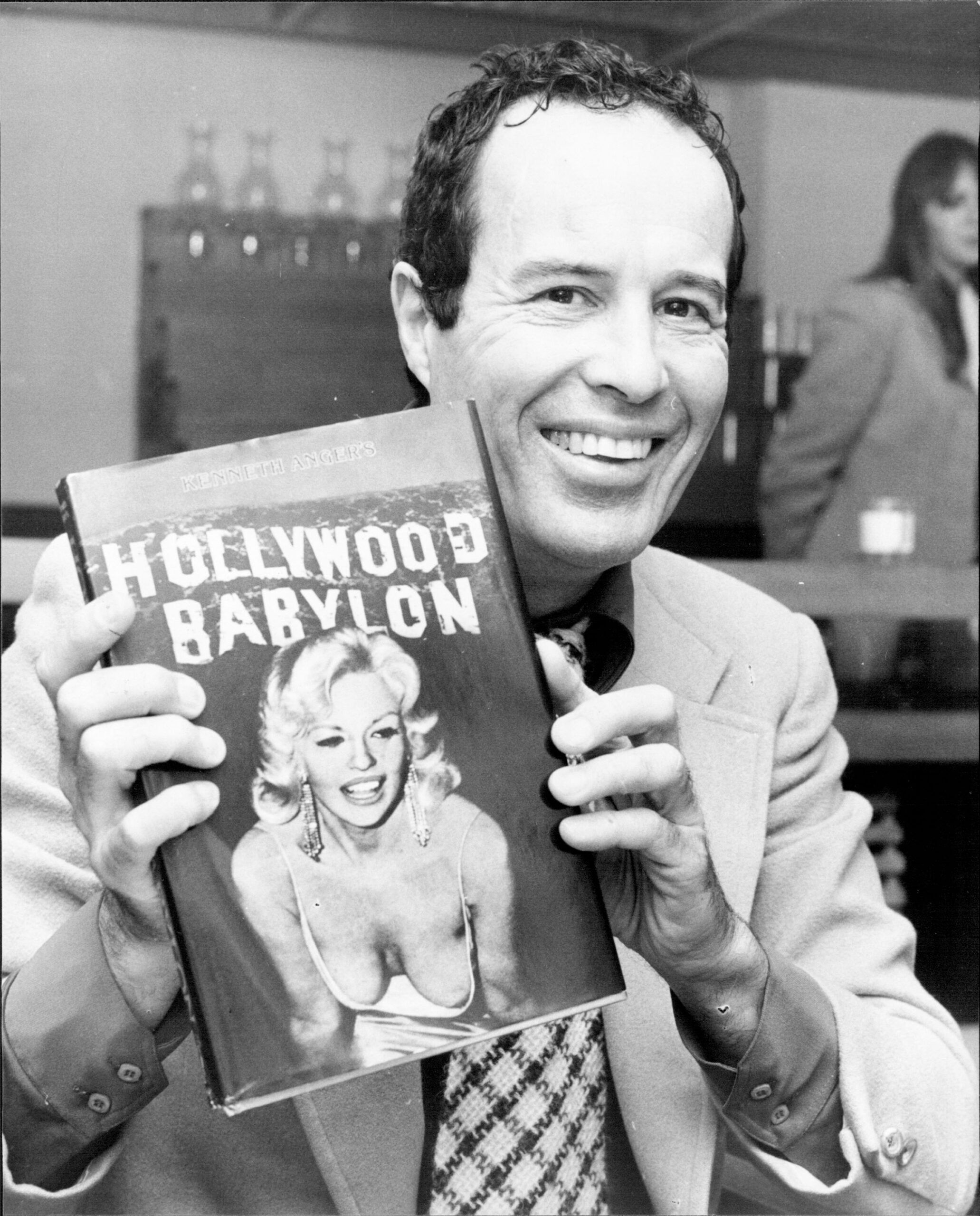Some know the late Kenneth Anger—avant-garde filmmaker, writer, and gay icon—as the creator of immaculately queer works like Scorpio Rising, Fireworks, and Lucifer Rising. Some may remember him as the author of the infamous gossip compendium “Hollywood Babylon.” However you remember him, keep that memory close. Because there’s never been anyone like Kenneth Anger, and there never will be again.
From the minute Anger came on the scene, he was inventing stories about his life. Glamorous stories that may or may not have been true: such as his claim that he appeared in the 1935 Max Reinhardt-inspired A Midsummer Night’s Dream alongside James Cagney and a host of other WB stars. He said he danced with Shirley Temple as a child—he said a lot of things that placed him at the center of a glitzy but decaying golden-age Hollywood, a world he knew well, and wanted to immortalize forever.
Related:
How a 1960s Openly-Gay Playwright Met the Beatles, and His Untimely End
In 1966, Joe Orton had the world on a string. Then he was murdered.
As one of the world’s first openly-gay filmmakers, Anger knew what it was to take risks. He didn’t care. He didn’t have a choice. He was an artist working at a time when gay sex was still criminalized across the country. That didn’t stop him from making Jean Genet-inspired fever dreams on film. His first film, Fireworks—featuring a stylized gangbang scenario—got him arrested for obscenity. He kept making films anyway, and he kept making them queer. Inspired by the realms of Greek myth, children’s stories, and Hollywood lore, Anger made abstract films that elevated gay life to the level of art. In a time of closeted queers and dead gay playwrights, it was exactly what we needed.
It might have been a need for quick cash that lead Anger to write “Hollywood Babylon,” his iconic tome detailing the grosser and gaudier aspects of the film industry, but he brought to it a passion for invention that’s evident across all his work. In the book, he created myths about Hollywood’s favorite celebrities, often attributing a queer supertext to films and actors he loved. He was the one who first claimed that the closeted actor Ramon Novarro’s death by the hands of hustlers caused star’s body to be found with a jade dildo up his ass. He claimed Valentino was gay, and the Gish sisters. He invented stories about celebrities that weren’t logically true, but felt emotionally true. That’s why we still remember them today: hell, last year’s Babylon even serves as an offbeat, unofficial adaptation of Anger’s book of founding Hollywood myths.
But queer people invent, we know, out of necessity. When the world is too straight, too gloomy, too utterly boring for us to live in, we have to transform it into something fascinating. That’s exactly what Anger did with “Hollywood Babylon.” He transformed the gloomy, boring, ordinary tragedies of the stars into gay parables. And he did it beautifully.
When Karina Longworth decided to make “Hollywood Babylon” the subject of its own season of her Hollywood history podcast “You Must Remember This,” I went into it with an open mind. Anger was getting some attention, and that could only be a good thing, right?
Wrong. What became abundantly clear after listening to a few episodes is that Longworth’s shtick of “fact-checking” the book missed the point entirely. “Hollywood Babylon” wasn’t meant as a work of serious scholarship. It was meant to be gay. It was meant to be gossipy. It was meant to put us, queer people, at the center of a world that had forced us to stay closeted for so long. Anger stayed true to his surname in writing it, bringing a brutal new understanding to readers of just how painful it was for those actors living inside the celluloid closet. He busted them out of it—albeit posthumously, and while sprinkling a healthy amount of gossip in with the facts.
Because that’s the point: for queer people, gossip is serious. It’s what we live on. It’s what drives us to get up every morning and face another gray, heterosexual world of boring bullsh*t. We’ve always thrived on bringing glamour and gusto to an otherwise drab world. Anger did it better than most. And for that, we’ll always remember him fondly.
Don't forget to share:
Help make sure LGBTQ+ stories are being told...
We can't rely on mainstream media to tell our stories. That's why we don't lock our articles behind a paywall. Will you support our mission with a contribution today?
Cancel anytime · Proudly LGBTQ+ owned and operated
Read More in Culture
The Latest on INTO
Subscribe to get a twice-weekly dose of queer news, updates, and insights from the INTO team.
in Your Inbox














